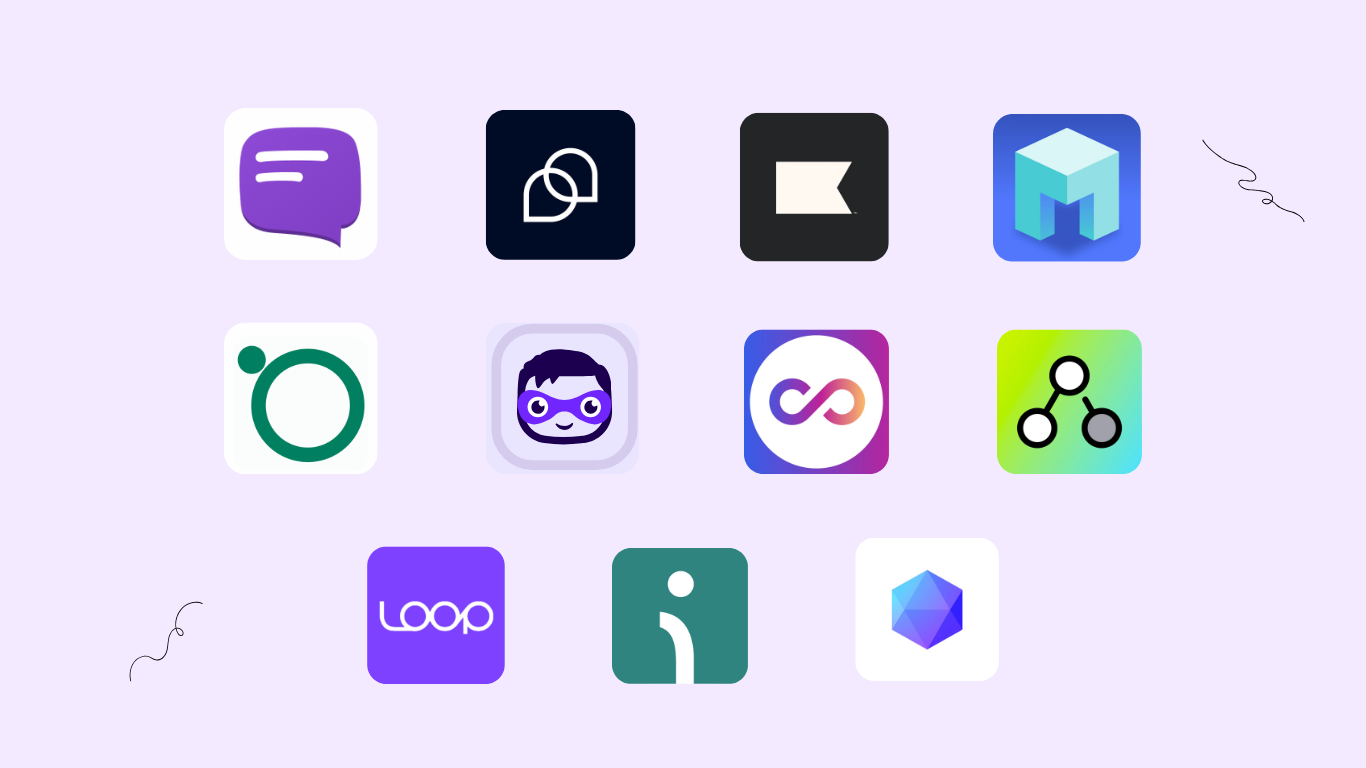
Managing a Shopify store can be hard.
You have to look after marketing, inventory, customer support, content creation all at once. It’s fast-paced, chaotic, and every manual task slows you down.
Having a Shopify AI agent changes that. These AI agents handle the behind-the-scenes work.
It helps in updating stock, tagging orders, writing product descriptions, sending personalized emails, and more. All with no coding required.
Some stores have even seen an 85% spike in sales just by automating email personalization.
With AI, you’re not just working faster, you’re working smarter.
Let’s look at the 12 Best Shopify AI agents to help your business grow.
Why Shopify Stores Need AI Automation in 2025
- Workflow automation:
AI tools like Shopify Flow can handle routine jobs like tagging orders, updating inventory, and routing tasks all without coding. This saves time and ensures things happen instantly.
- Smarter inventory management
AI can predict when you’ll run out of stock by analyzing sales trends. It can then reorder automatically or adjust promotions helping you avoid both overstock and stockouts.
- AI-Powered Content & SEO
AI can write product descriptions, ads, and emails in seconds. It also helps tag products with the right keywords, improving your store’s visibility and saving you hours of work.
- Smart Segmentation & Engagement
Using real-time data, AI segments your customers (new vs. returning, big spenders, etc.) and sends them personalized messages. In fact, AI assistants helped agents resolve 14% more support tickets per hour and cut handling time by 9%, directly boosting satisfaction and sales.
- Abandoned Cart Recovery
AI can send reminder emails, texts, or offers when shoppers leave without buying. This can help recover up to 10% of lost sales without you lifting a finger.
How We Chose These AI Agents
To compile this list, we evaluated dozens of Shopify automation apps. We prioritized agents that:
- Apps that use AI to make decisions
- They sync natively with Shopify data
- The have multi-step workflows
- High ratings and reviews
- Free or low-cost plans for small stores
- Easy setup for non-technical users
We favored agents that deliver effective ROI: saving time, cutting costs, or boosting revenue.
11 Best Shopify AI Agents in 2025
Below are the 11 best AI-powered Shopify apps and platforms to automate your store. Each includes key features, pros/cons, pricing, and ratings
1. AskTimmy.ai - AI Chatbot
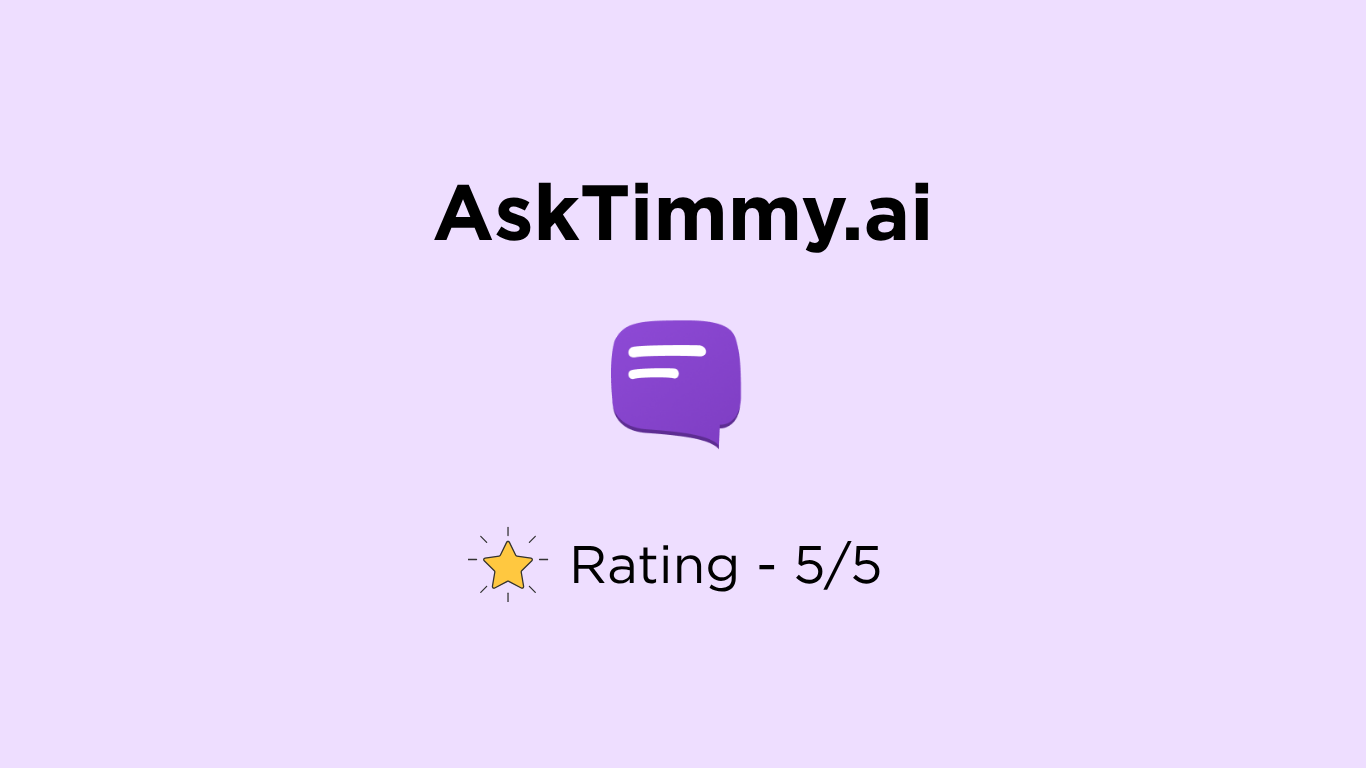
AskTimmy.ai is an AI chatbot and shopping assistant for Shopify. It syncs instantly with your product catalog and store FAQs.
It can answer customer questions, suggest products, and nudge shoppers. Think of it as a 24/7 virtual sales rep and support agent.
AskTimmy can be trained on your own store policies and documents, enabling it to provide personalized, on-brand answers.
It also supports photo search (find products from images), multilingual chat (95+ languages), and real-time inventory lookups. Merchants report that setup is quick and the support is very responsive.
Key Features:
- 24/7 AI chat (sales and support) across web and mobile
- Personalized product recommendations and AI nudges in chat.
- Photo search to help shoppers to find matching products.
- Multilingual support (95+ languages) for global stores.
- In-chat “Add to cart” buttons to boost conversions.
- Fully no-code setup with customizable chat widgets
- Customizable knowledge base (draws on pages, FAQs, policies).
- Dedicated onboarding and 24/7 support for premium plans.
Pros:
Human-like conversational AI and quick, no-code setup. The app is highly customizable to your brand with excellent customer support.
Best For:
DTC founders and SMBs who want a virtual 24/7 sales/support agent to boost conversions and reduce FAQs.
Pricing
- Free plan includes 250 AI replies (lifetime).
- Paid plans start at $24/month (1,000 replies),
- Plus plan - $49 (2,500 replies),
- Pro plan - $99
Rating:
5.0/5 on Shopify
2. Shopify Flow (Built-in)
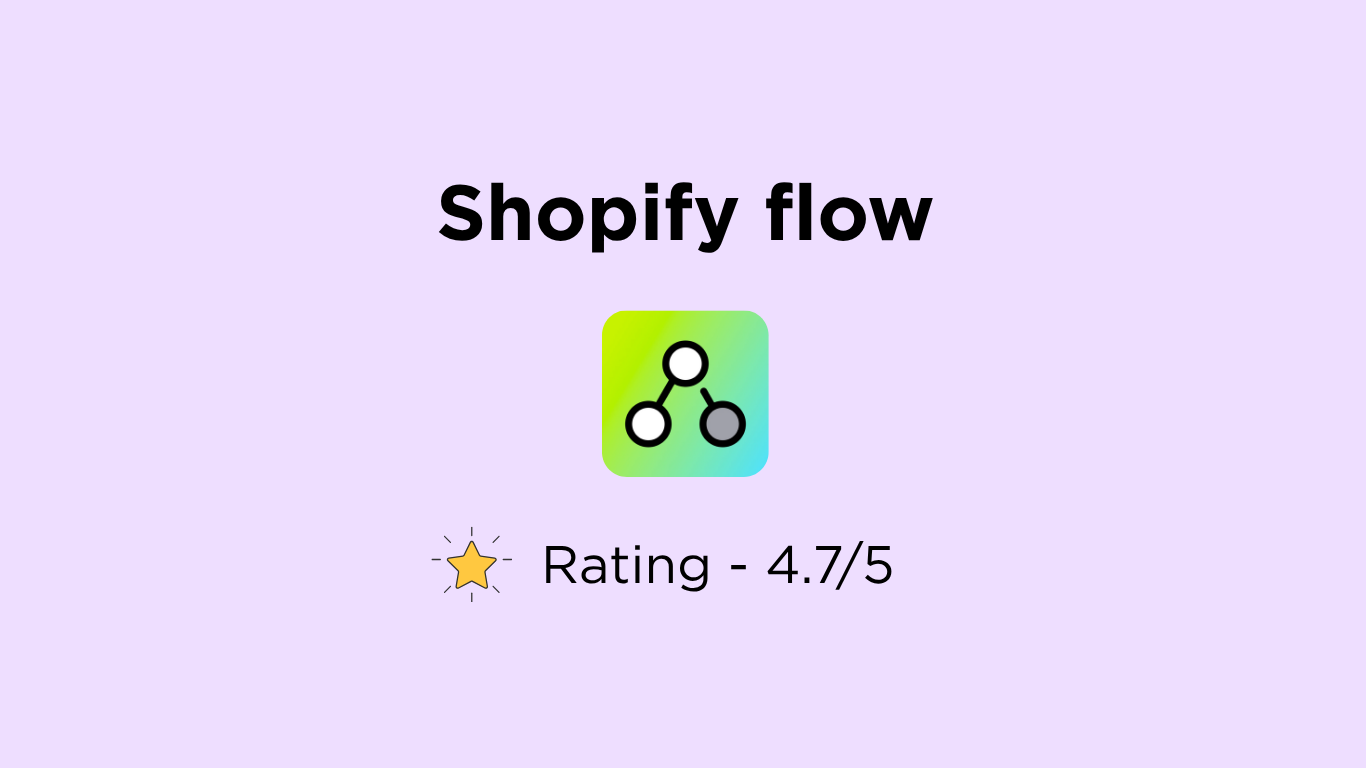
Shopify Flow is Shopify’s native automation platform. It provides a visual, no-code workflow builder for automating backend tasks.
You can string together triggers and actions across orders, inventory, customer tags, and marketing without writing any code.
For example, Flow can automatically tag VIP customers, send low-stock alerts, flag high-risk orders, sync product data to external systems, and more.
It comes with 100+ pre-built workflow templates and connects with many Shopify features. Flow’s tight integration and scalability make it ideal for larger brands and ops teams.
Key Features:
- Drag-and-drop workflow builder.
- 100+ workflow templates.
- Trigger-based actions on orders, inventory, customers, products.
- Integrations with Shopify tools and apps.
- AI-powered suggestions for building workflows.
- Real-time workflow logs and notifications for monitoring.
Pros:
Native Shopify integration; highly flexible and powerful; no-code for non-technical teams.
Cons:
Advanced Flow features require Shopify Plus. The complexity of the app can be overwhelming for small stores.
Best For:
High-growth brands and operations teams on Shopify Plus needing robust backend automation.
Pricing:
Included free with Shopify Plus plans. (Flow is not available on lower-tier Shopify plans.)
Rating:
4.6/5 on Shopify App Store (456 reviews).
3. Shopify Magic (Built-in)

Shopify Magic is Shopify’s built-in generative AI toolkit. It layers AI-powered content generation and engagement tools directly into your Shopify admin.
Magic can auto-generate product descriptions, blog ideas, email copy, and even AI chat responses.
For example, a merchant can input keywords and let Magic write a polished product listing in seconds.
It also includes an AI-powered email campaign builder and AI for Shopify Inbox chat replies. The tools use your store data to keep content on-brand and personalized. And because Shopify Magic is built-in, it’s free on all Shopify plans (with some features gated by plan level). It’s plug-and-play: merchants simply click the Magic button next to a product or email template and get AI suggestions instantly.
Key Features:
- Get full AI-generated product descriptions by adding bullet points or keywords.
- Auto-generate subject lines, email copy, and optimize send times.
- Shopify Inbox now uses Magic to reply to customer questions
- Magic can suggest details for new products.
- Always free for basic use
Pros:
Instant, no-cost AI content and engagement. The app is fully integrated and requires zero setup.
Cons:
Some advanced features only on higher Shopify tiers. Only less customizable than third-party apps.
Best For:
Solo founders and small teams wanting quick content generation and engagement without extra apps.
Pricing:
Free (included in all Shopify plans)
Rating:
4.6/5 (Shopify reported rating across merchants).
4. Alloy Automation

Alloy Automation is a powerful workflow platform built for eCommerce. It connects Shopify to 100+ apps and lets you build advanced cross-app automations.
Unlike Shopify Flow, Alloy is a separate service specializing in complex integrations. You use a visual editor to map triggers to actions (e.g. send a Slack alert, update Google Sheets, notify via email).
It even supports custom APIs and webhooks if you need unique integrations. Alloy’s robust engine can send customers follow-ups, update inventory systems, sync data with CRMs. It’s highly flexible for stores with complex stacks.
Key Features:
- Connect Shopify to Klaviyo, Gorgias, Slack, Google Sheets, Yotpo, Recharge, and many more.
- No-code designer to drag triggers, conditions, and actions.
- AI-based workflows to add AI triggers that can act on customer behavior or inventory signals.
- Smart automations such as auto-tag orders, route support tickets, and sending customer surveys.
- Sync to automate stock updates, order exports, or ERP entries.
Pros:
Highly flexible and extensible; supports advanced multi-step, multi-app workflows.
Cons:
Steeper learning curve; pricing is at enterprise level.
Best For:
Tech-savvy teams who need custom automations across many apps and platforms.
Pricing:
Enterprise pricing - $2,500/month for unlimited workflows and 100K+ actions
Rating:
5.0/5 (9 reviews).
5. MESA by ShopPad

MESA is a Shopify-native automation app with a strong focus on ease-of-use. Think of it as an extended version of Flow with extra integrations and templates.
With MESA, you can automate tasks across marketing, fulfillment, and support. It offers 100+ built-in integrations and hundreds of pre-built “recipes”.
It helps you sync inventory to external warehouses, sending review request emails, or updating orders.
MESA provides built-in utilities for email and SMS triggers. Its visual builder and templates make setup quick even for non-developers.
Key Features:
- Connect to Shopify apps and tools (emails, SMS, shipping, etc.).
- Pre-built automation templates ready to install
- No-code workflow builder to customize automations with a drag-and-drop editor.
- Built-in tools such as email/SMS triggers and AI content generator
- Some workflows use AI for tasks like content generation or smart routing.
Pros:
User-friendly and quick to set up for non-technical founders.
Cons:
Some advanced integrations require higher-tier plans and can be costly for very simple stores.
Best For:
Small businesses and fast-growing stores that need no-code automation across marketing and ops.
Pricing:
- Free plan available (limited tasks).
- Paid plans start at $12–$29/month
- Flex plan is around $29/mo
Rating:
4.7/5 (145 reviews)
6. Rebuy Personalization Engine
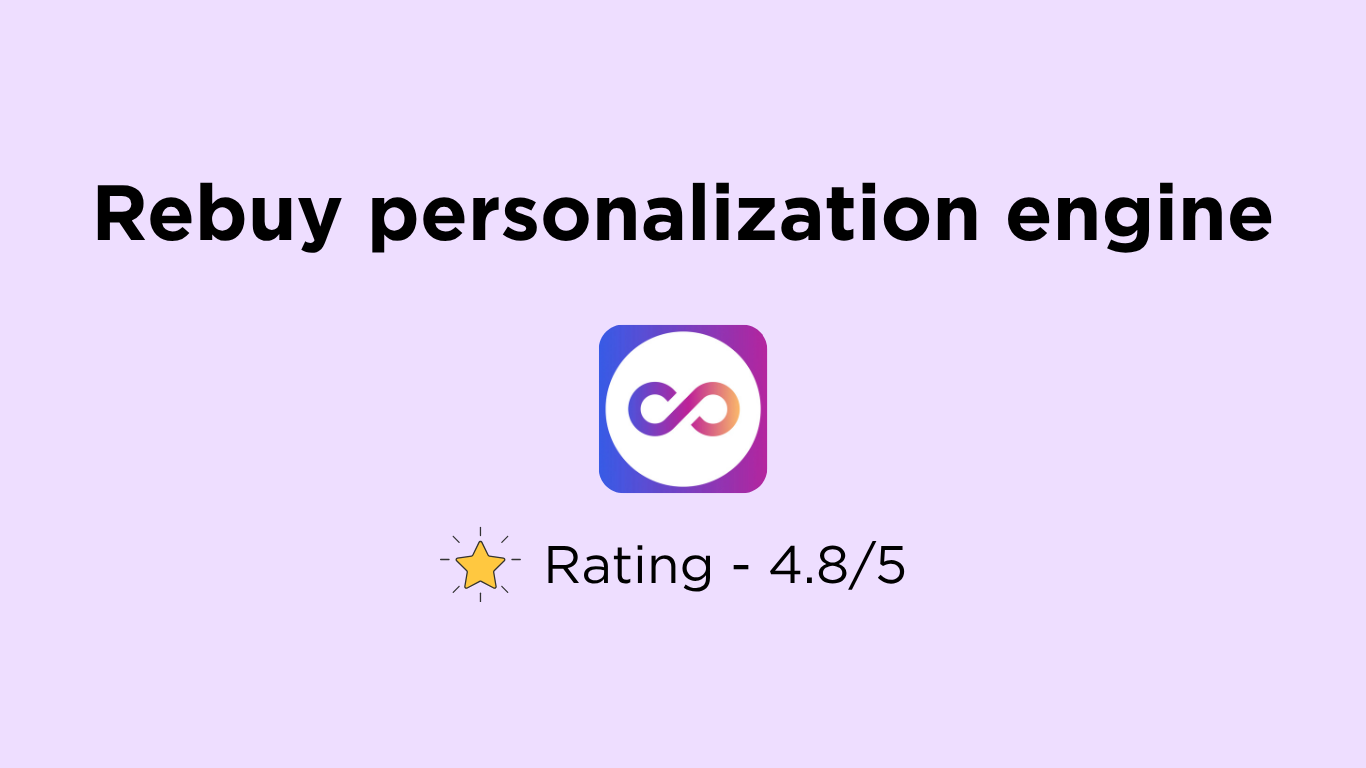
Rebuy is an AI-driven upsell and personalization engine built for Shopify. It learns customer behavior to deliver product recommendations, upsell offers, and bundles.
For example, Rebuy’s ‘Smart Cart’ can display post-purchase upsell offers or dynamic bundles in the cart/checkout.
It also powers widgets on product and cart pages displaying ‘Customers also bought or Complete the look’.
Rebuy can personalize emails and integrate with tools like Klaviyo or Gorgias.
Key Features:
- AI-powered product recommendations at product, cart, and checkout pages.
- Smart Cart & Post-Purchase upsells in checkout to add products
- Create auto-generated product bundles (Buy X, Get Y)
- Send targeted post purchase offers immediately in thank-you pages
- Integrates with Klaviyo, Recharge, Gorgias, etc.,
Pros:
Drive significantly higher AOV and conversion rates; seamless on-site integration; proven lift (e-commerce case studies).
Cons:
Requires some setup and split-testing to optimize; premium pricing for best features.
Best For:
Brands focused on personalization, cross-sell/upsell, and increasing customer lifetime value.
Pricing:
- Free plan for testing (dev stores).
- Starter tier from $25/month (basic features).
- Enterprise plans around $584/month (with all features & premium support)
Rating:
4.8/5 (750+ reviews)
7. Tidio + Workflows
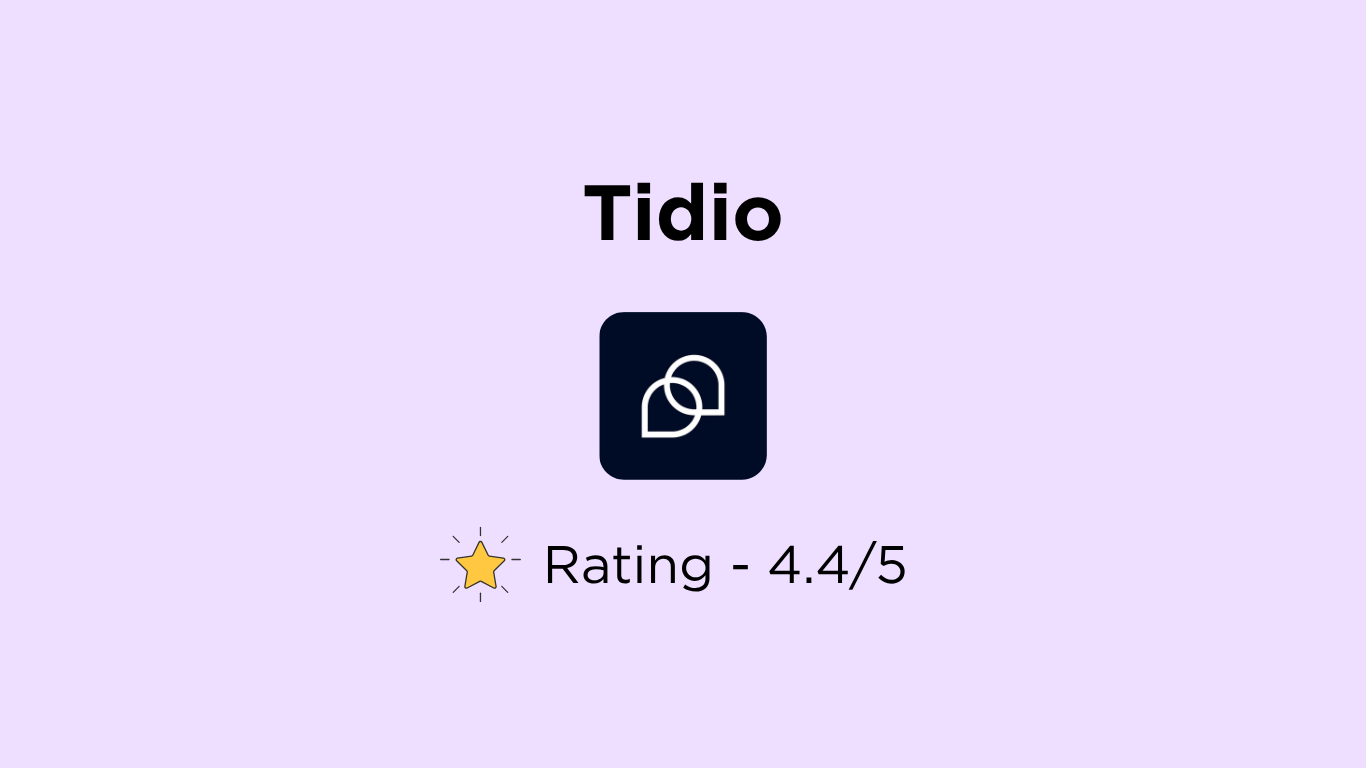
Tidio is a popular live chat and chatbot platform with built-in automation (called Flows). It combines AI chatbots with a drag-and-drop visual flow builder.
Its GPT-powered bots can answer FAQs, recommend products, and collect leads 24/7. You can also set up automated chat/SMS/email sequences for cart abandonment.
Tidio supports multi-channel out of the box: live chat on your site plus email, Messenger, and WhatsApp integrations.
Think of Tidio as an easy way to add 24/7 AI support and automated outreach to your store.
Key Features:
- AI Chatbots to engage visitors, answer questions, and recommend products.
- Live Chat Widget and has integrations with email, Messenger, and WhatsApp.
- Visual builder to create sequences (welcome messages, cart recovery, feedback collection).
- Route complex chats to human support with ticketing.
- Send follow-up messages based on user actions (e.g. after X minutes of inactivity).
- Manage chats and alerts on iOS/Android.
Pros:
Quick setup and 24/7 support helps increase sales. The app is affordable for basic use. The UI is user-friendly, and merchants praise the multi-channel reach and workflow capabilities.
Cons:
Advanced AI features (like GPT-4-based bots) require a premium plan. Some users report limitations in customization.
Best For:
Stores of all sizes that want instant support and engagement automation
Pricing:
- Free plan available (basic chat for up to 50 visitors and simple workflows).
- Paid plans from $29/month (for advanced bots and unlimited contacts).
Rating:
4.4/5 (820 reviews)
8. Omnisend (Marketing Automation)
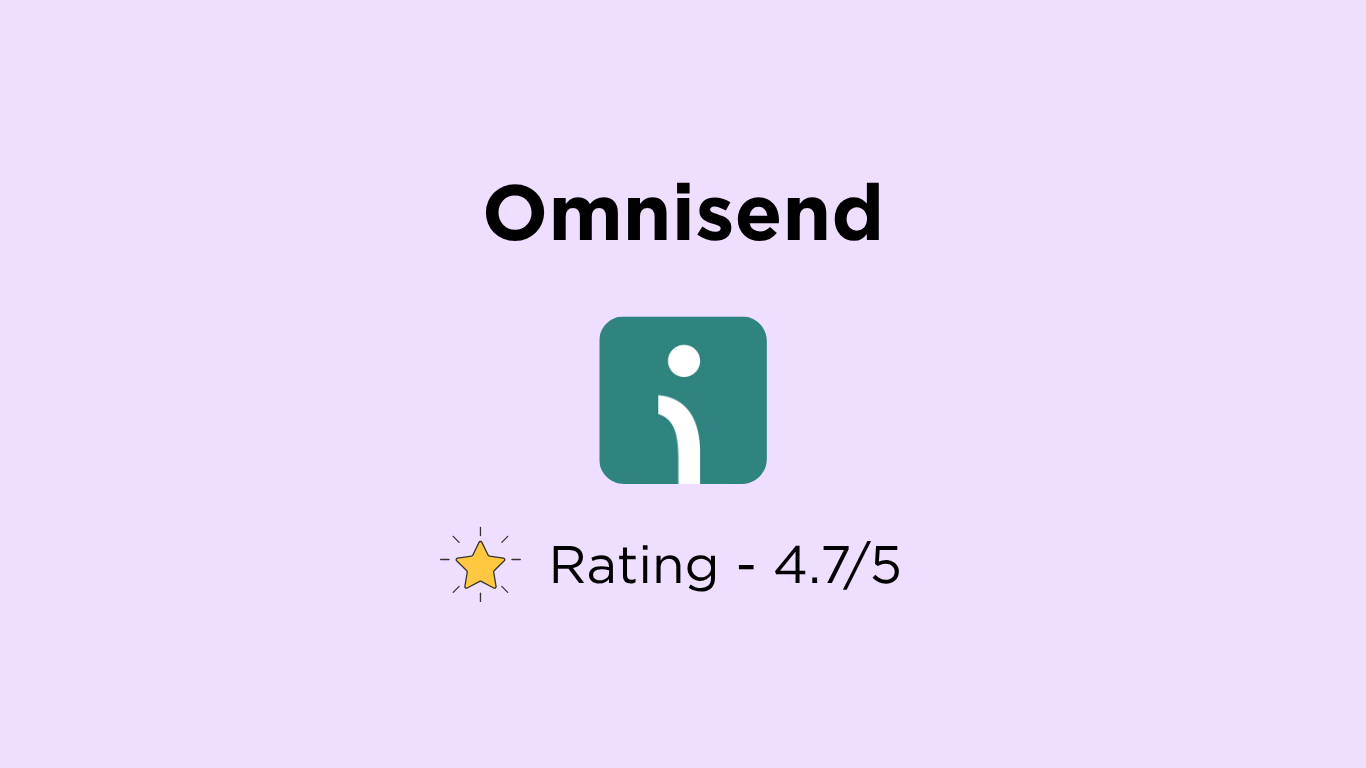
Omnisend is an all-in-one email and SMS marketing automation platform. Its AI marketing assistant helps segment customers, craft messages, and trigger campaigns.
You can automate welcome emails, abandoned-cart reminders, browse-abandonment prompts, and re-engagement flows in a few clicks.
Omnisend also offers pop-ups and landing pages to grow your list, and pre-designed templates for emails and SMS.
In practice, Omnisend makes it easy to run data-driven campaigns. For example, you can automatically group customers by behavior and send them personalized offers.
Key Features:
- Prebuilt workflows such abandoned cart, post-purchase follow-ups, etc.
- Auto-generates subject lines and email copy options, plus auto-translation.
- Dynamic segments (e.g. by purchase behavior, engagement) updated in real time.
- Native multi-channel marketing with extensive templates.
- Pop-ups, wheel-of-fortune, landing pages, QR codes.
- Reports on open rates, sales from campaigns, A/B testing results.
Pros:
Easy drag-and-drop builders and integrates with Shopify seamlessly. Free users still get 24/7 live support, which is rare. Many merchants report excellent conversion lift from Omnisend flows.
Cons:
Some advanced features (AI content generation, SMS sending) require paid plans.
Best For:
Growth-focused marketers and founders who need a single platform for email/SMS automation and analytics.
Pricing:
- Free plan available (up to 500 emails/mo).
- Paid plans start around $16/month (for more sends and advanced features).
- Pro plan - $59/month
Rating:
4.7/5 (2,861 reviews).
9. Klaviyo (with Predictive Automation)
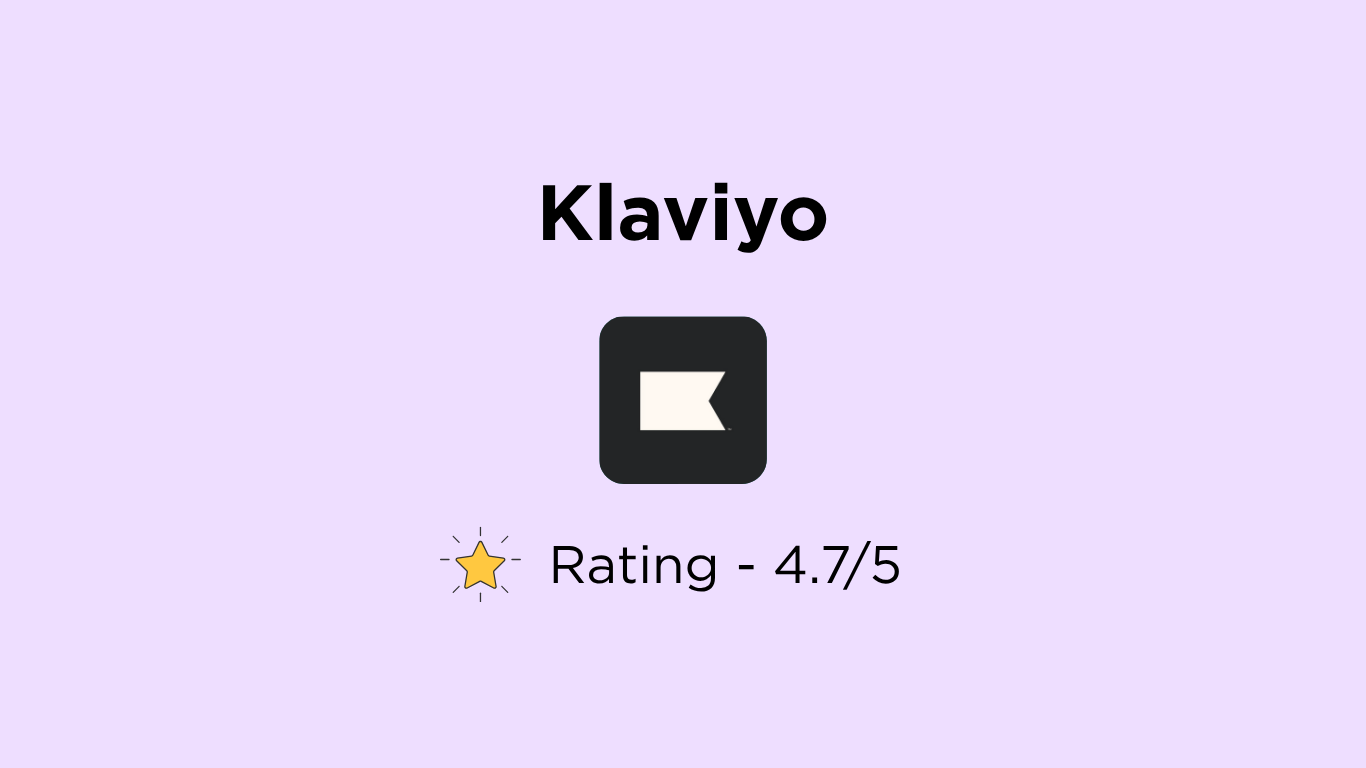
Klaviyo is a leading email and SMS marketing platform (and basically the industry standard for Shopify). It offers deep customer analytics and predictive AI.
Klaviyo automatically syncs all your Shopify data (orders, site behavior, etc.) to build detailed profiles and segments.
Its built-in AI models can predict things like a customer’s next purchase date, churn risk, or product affinity.
Klaviyo also lets you send dynamic, personalized emails and text messages at scale. It’s especially powerful for lifecycle marketing across multiple channels.
Key Features:
- Forecast next order, churn likelihood, and optimal send times.
- AI-driven segments (e.g. “VIP repeat buyers”, “likely to churn”.
- Automated welcome emails, abandoned carts, post-purchase upsells, etc.
- Integrated email, SMS, and even WhatsApp messaging.
- Dynamic product blocks and custom fields within emails.
- 300+ apps including Shopify, Recharge, Gorgias, so all customer data syncs automatically.
Pros:
Industry-leading analytics and personalization. Scales to high volume and the AI forecasting and segmentation tools work well.
Cons:
Pricing scales with contact list size (can get expensive as you grow).
Best For:
DTC brands and retention teams focused on lifetime value and customer journeys.
Pricing:
- Free for up to 250 contacts (sending limits apply: 500 emails/month).
- Paid plans start at $20/month for SMS
- $20/month for email
Note: SMS credits are extra (carrier fees included).
Rating:
4.7/5 (2,402 reviews)
10. Loop Subscriptions (AI Churn Prediction)

Loop is a subscription management app that leverages AI to reduce churn and grow recurring revenue. It gives you the tools to create flexible subscription models and intelligently manage subscribers.
Loop’s AI features analyze customer behavior to predict churn and automatically trigger retention flows.
For example, if a subscriber seems at-risk (skipping a payment), Loop can auto-send a personalized offer or retry the payment.
It also includes analytics on subscriber metrics and A/B testing for cancellation offers. In short, Loop helps you keep more customers on subscription plans.
Key Features:
- Identifies at-risk subscribers before they leave.
- Send special offers or surveys to save subscribers.
- Dashboards for churn rate, cohort analysis.
- Support for bundles, prepaid plans, trials, freemium models.
- Branded self-service portal for subscribers to manage their plans.
- Auto-payment retries and smart dunning to recover failed payments.
Pros:
Significantly reduces churn and increases LTV; very easy to implement. Features like cancel flows and payment recovery have saved merchants thousands in lost revenue.
Cons:
Mainly benefits stores that already have a subscription program (not for one-time sale stores).
Best For:
Shopify stores with recurring revenue models (e.g. beauty, food, supplements) wanting to optimize subscriptions.
Pricing:
- Free plan for up to 50 active subscriptions
- Paid plans from $99/month (Starter)
- $399 (Pro) that include advanced features like cancellation offers, bulk edits, multilingual support.
Rating:
4.9/5 (457 reviews)
11. Lob (AI Direct Mail Automation)
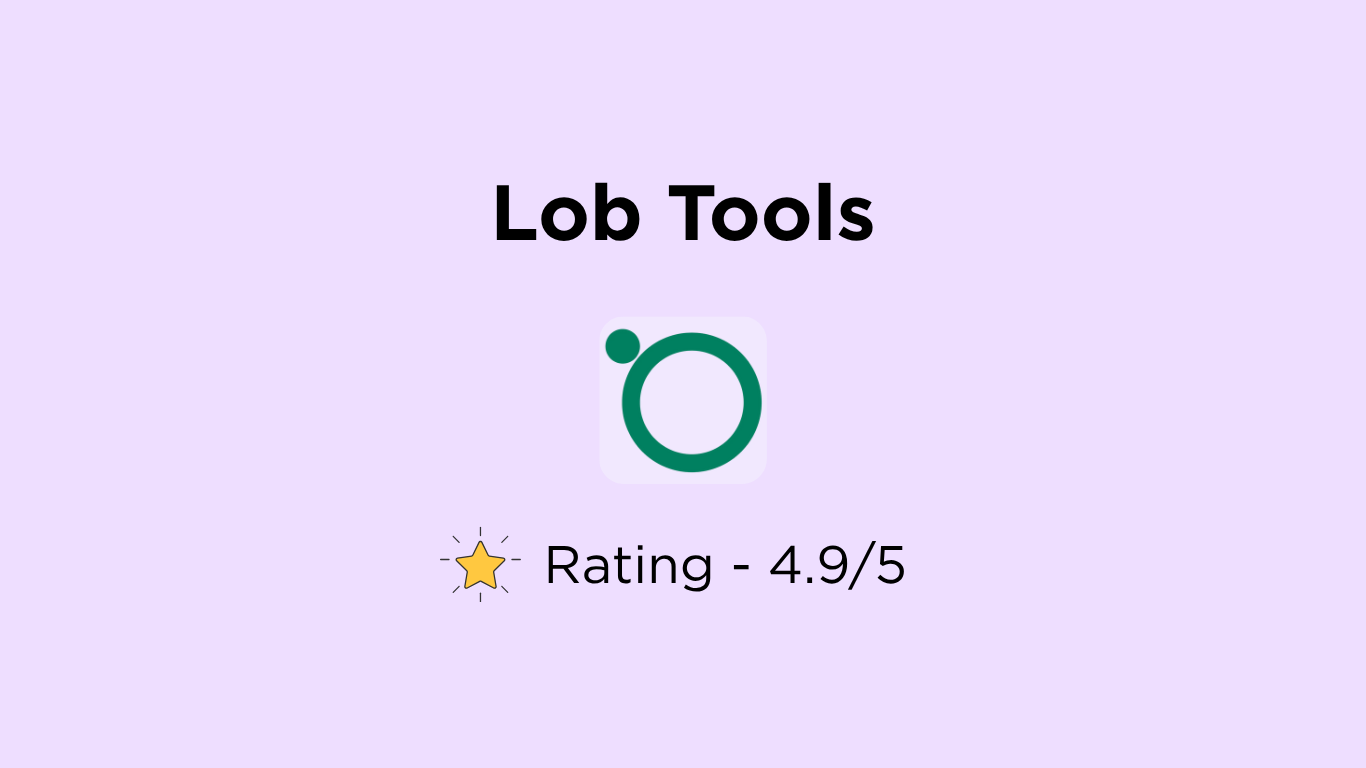
Lob brings automation and AI to direct mail. Its Shopify “Lob Tools” app connects your store to Lob’s print-and-mail platform.
You can trigger postcards, letters, or flyers based on Shopify events (abandoned cart, VIP milestone, etc.).
Lob’s AI can personalize mail content and target the right audience segments.
For example, you might automatically mail a 10% off postcard to customers who haven’t purchased in 6 months.
Given that 85% of ecommerce marketers say direct mail has the best ROI of any channel.
Lob’s omni-channel approach can be very powerful. The app syncs Shopify data to Lob, and offers real-time address verification and campaign tracking.
Key Features:
- Send postcards/letters based on Shopify triggers.
- Customize which Shopify fields (email, name, address) go to Lob.
- Manage several Lob business accounts from one place.
- Ensure mailing addresses are deliverable before printing.
- Advanced triggers can tie into Lob’s print API for full control.
Pros:
Extends your marketing reach beyond digital and has highly personalized campaigns. It’s unique among Shopify apps as a true offline automation tool.
Cons:
Requires budgeting for postage and printing costs; best suited for high-AOV brands.
Best For:
Premium DTC brands and marketers looking to add an offline channel to their automated campaigns.
Pricing:
- The Lob Tools app itself is free (with limited webhooks). Lob’s usage is pay-per-mail.
- The app’s Premium plans ($5–$9/mo) unlock more active webhooks and log retention. (Mailing costs depend on volume and target country.)
Rating:
New app (no reviews yet on Shopify). Lob as a company is established
How to Choose the Right AI Automation Tool
- AI Nudges & Chat Support
AskTimmy engages with visitors the moment they land on your site. With features like manual nudges, it can guide customers to explore products, find answers, and convert faster without human help.
- Abandoned carts / email campaigns?
Use an AI marketing platform like Omnisend, Klaviyo, or ShopAgain. They’ll automatically send personalized email/SMS follow-ups when carts are abandoned or customers go cold.
- Backend workflow automation?
For complex order/inventory processes, use Shopify Flow (for Plus stores) or a general automation tool like Alloy.
- Quick wins with little setup?
Built-in tools like Shopify Magic or apps like MESA and ShopAgain are plug-and-play. They use smart defaults so you see benefits instantly without a steep learning curve.
- Increase personalization & AOV?
Tools like Rebuy that specialize in AI-driven product recommendations and upsells.
- Human touch vs. AI
AI agents are great for repetitive, data-driven tasks and can even make recommendations, but you still need human strategy oversight. Always review and tweak AI campaigns regularly.
Conclusion
Running a Shopify store doesn’t have to mean doing everything yourself. With AI tools, you can automate the boring stuff like tagging orders, writing product copy. AI chatbots can automatically reply to the same customer questions.
The stores that grow the fastest are the ones that work smarter, not harder.
Try out one or two tools, and see the difference for yourself. You’ll save time, reduce mistakes, and likely boost sales within weeks.
With a Shopify AI agent in your corner, your store can practically run itself.
.png)
.png)